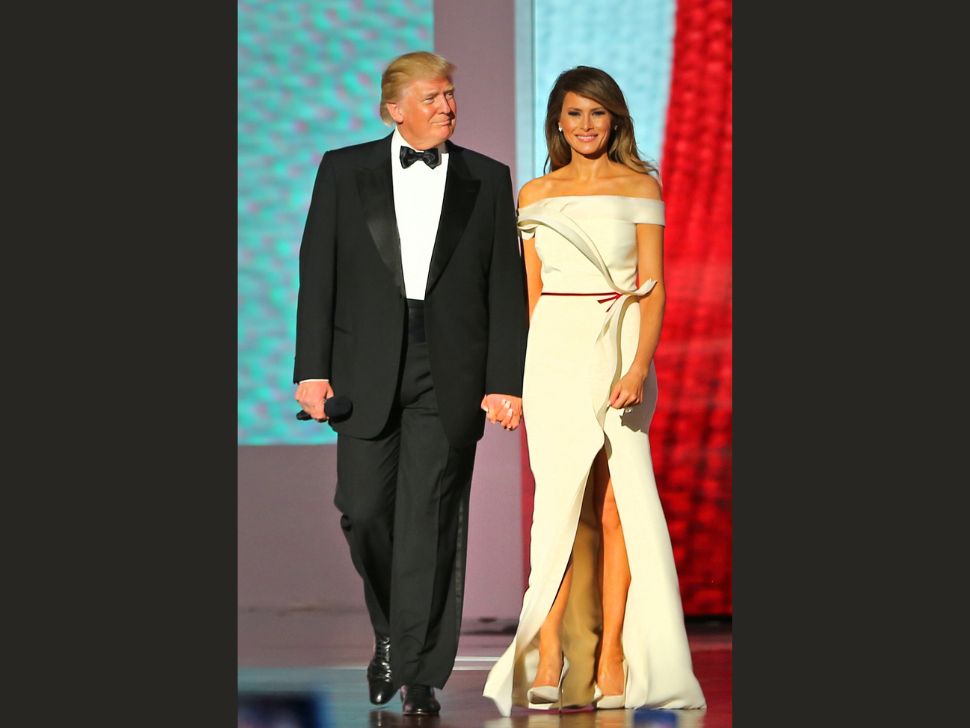House Republicans Propose Renaming Kennedy Center Opera House After Melania Trump
Move sparks political controversy as GOP-led committee advances amendment to rename iconic venue
In a controversial move that has stirred political debate and public scrutiny, House Republicans have advanced a proposal to rename the Opera House at the John F. Kennedy Center for the Performing Arts in Washington, D.C., after former First Lady Melania Trump.
The amendment, introduced by Idaho Republican Representative Mike Simpson, was added to a larger appropriations bill for the Department of the Interior and related agencies. It passed the House Appropriations Committee with a 33–25 vote, largely along party lines. Democratic Representative Marie Gluesenkamp Perez broke ranks with her party to support the measure.
Honouring Melania Trump's Role in the Arts?
Rep. Simpson described the proposed renaming as “an excellent way to recognize [Melania Trump’s] support and commitment to promoting the arts.” By tradition, the First Lady serves as the honorary chair of the Kennedy Center’s Board of Trustees—a role Melania Trump currently holds. However, critics argue that the gesture is more political than cultural.
First Lady Trump has yet to comment publicly on the proposal, and the measure still requires full House approval—an uncertain path, especially in a divided Congress.
A Political Power Play?
Opponents of the amendment see it as part of a broader campaign by the Trump administration to reshape the Kennedy Center in its image. Since returning to office, President Donald Trump has taken an unusually hands-on approach to the institution: firing board members appointed by President Biden, ousting longtime leaders, and installing himself as chairman of the board.
“It’s just another assault in this whole lineup of the president taking control of the Kennedy Center,” said Rep. Chellie Pingree, the ranking Democrat on the Appropriations subcommittee. “It also leads me to wonder: does the president plan to rename the whole Kennedy Center after himself?”
The idea has drawn parallels to other recent Republican proposals, including suggestions to rename a D.C.-area airport after Donald Trump, put his face on U.S. currency, or even carve him into Mount Rushmore.
More Than Just a Name
The Opera House is the second-largest venue at the Kennedy Center, with more than 2,300 seats. Its red velvet walls, Austrian crystal chandeliers, and a grand silk curtain gifted by Japan make it one of the most prestigious stages in the U.S. It is the home of the Washington National Opera and the annual Kennedy Center Honors—an event President Trump notably skipped during his first term after honorees threatened to boycott.
Critics also warn that renaming the venue could complicate fundraising efforts. Performing arts institutions often reserve naming rights for donors contributing tens of millions of dollars. The Eisenhower Theater, for instance, honours President Dwight D. Eisenhower for his role in authorizing the original legislation that funded the National Cultural Center—later renamed the Kennedy Center following JFK’s assassination.
Culture Wars and Drag Shows
President Trump has not shied away from politicizing the Kennedy Center. In a Truth Social post earlier this year, he slammed some of the centre’s programming, writing: “NO MORE DRAG SHOWS, OR OTHER ANTI-AMERICAN PROPAGANDA — ONLY THE BEST.”
His comments followed protests by drag performers outside the Kennedy Center during a June performance of Les Misérables attended by the Trumps and Vice President JD Vance. Days later, five Democratic senators held a Pride concert in one of the centre’s smaller theatres.
Despite the controversy, Trump’s administration has significantly increased funding for the arts institution. A domestic policy bill signed earlier this month included more than $250 million for the Kennedy Center—over six times its usual annual federal allotment.
A Legacy in the Balance
The Kennedy Center was conceived as a national cultural hub during the Great Depression, formalized in the 1950s, and renamed for President John F. Kennedy in 1964 following his assassination. It remains a powerful symbol of bipartisan support for the arts.
Whether renaming one of its signature venues after Melania Trump becomes a footnote or a flashpoint in the ongoing culture wars remains to be seen. With the House set to recess and government funding deadlines looming, the final fate of the amendment—and the Opera House’s name—hangs in the balance.
